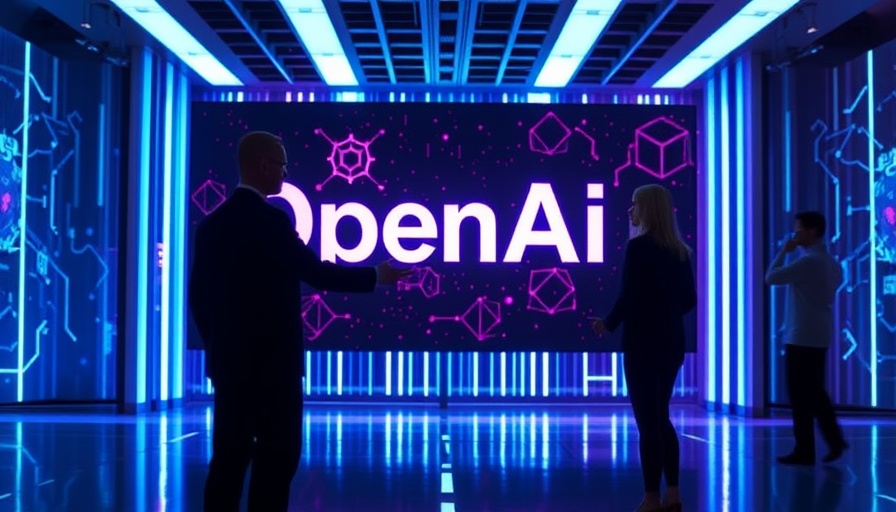
SoftBank's Ambitious Investment in AI: A Landmark Partnership
In a move that has sent waves through the tech industry, OpenAI has recently announced a monumental funding deal with the Japanese investment group SoftBank. This agreement, which could ultimately raise up to $40 billion, is characterized as the most extensive capital-raising venture ever conducted for a startup, placing OpenAI’s valuation at a staggering $300 billion. At its foundation, this partnership aims to pioneer the realm of artificial super intelligence (ASI), a vision that SoftBank deems attainable through its collaboration with OpenAI.
The Evolution of OpenAI's Strategy
Historically, OpenAI has maintained a steadfast commitment to closed, proprietary models, prioritizing safety and control over openness. However, their approach is evolving amidst rising competition from open-source platforms like DeepSeek and Meta, which allow broader access and customization of AI tools. Recently, OpenAI's CEO, Sam Altman, noted that the company is now focusing on building a more open generative AI model, which marks a significant shift. This responsiveness to market dynamics illustrates their strategic pivot—an adaptive strategy essential for survival in the rapidly evolving tech landscape.
Understanding the Financial Breakdown
SoftBank’s initial investment of $10 billion is just the beginning, with additional funding of $30 billion contingent on meeting predetermined conditions by the end of 2025. This financial influx not only bolsters OpenAI’s resources for research and development but also positions the company as a leader in AI innovation—furthering its goal of achieving AGI (Artificial General Intelligence) and beyond. The need for massive computing power in this pursuit cannot be understated, making this partnership particularly strategic.
Challenges and Opportunities in the AI Landscape
As OpenAI forges ahead with its innovative goals, it faces mounting challenges. The apprehension regarding the safety and ethical implications of AI technology continues to be a significant concern, particularly from companies and governments hesitant to adopt models that lack control. The effectiveness of open-source models versus proprietary systems has ignited a critical debate, with influential voices, such as Elon Musk, calling for OpenAI to return to its roots of safety and transparency. The success of competing platforms like Meta's Llama, which has reached over a billion downloads, further complicates the competitive landscape.
The Path Toward Artificial Super Intelligence
SoftBank’s ambition to create artificial super intelligence emphasizes a broader narrative within the tech community—a race towards bridging the intelligence gap between human cognition and machine capabilities. This investment reflects more than just financial backing; it highlights a collective desire to explore new avenues of intelligence that can revolutionize industries ranging from healthcare to education. As the race heats up, both OpenAI and SoftBank are poised at the forefront of this transformative movement.
Implications for the Future of AI
The future of AI promises unprecedented advancements, but this path is fraught with ethical, technical, and societal challenges. The implications of such technology stretch beyond mere computational prowess; they resonate deeply with how we will define intelligence, creativity, and even humanity itself. OpenAI's transformation towards openness signifies a pivotal moment that could reshape our understanding of collaboration and innovation in artificial intelligence.
As we witness the unfolding of this partnership, it is essential for stakeholders—be they researchers, policymakers, or the general public—to engage with these advancements critically. The role of AI in our lives is becoming more significant, and fostering a dialogue around its ethical implications and applications is imperative for responsibly navigating the future.
 Add Row
Add Row  Add
Add 




 Add Row
Add Row  Add
Add 

Write A Comment